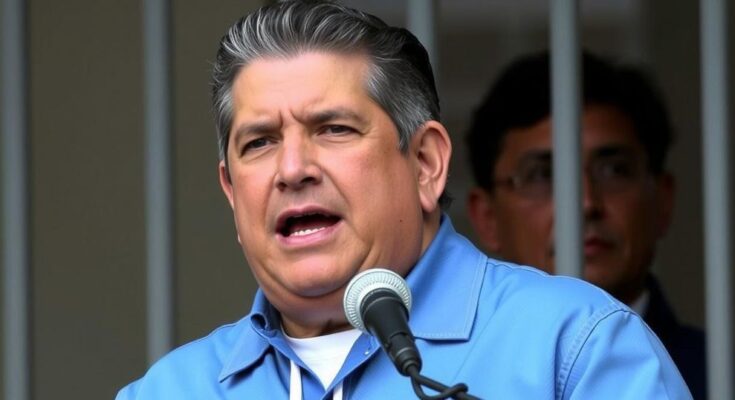Nicolás Maduro is set to be sworn in for a third term amid widespread dissent and an oppressive political climate in Venezuela. His administration is marked by severe economic and humanitarian crises, with significant opposition figures facing detention or exile. Notably, María Corina Machado, a key opposition leader, resurfaced to lead protests advocating for freedom, highlighting the risks of dissent in the current regime.
As Nicolás Maduro prepares to be inaugurated for a third term as Venezuela’s president, he faces both national and international condemnation. This latest term underscores his authoritarian rule, characterized by severe governance failures including rampant inflation, widespread hunger, and an ongoing mass exodus of citizens. The political landscape remains fraught, with hundreds of political prisoners detained and influential opposition figures, like María Corina Machado, forced into hiding. Despite the immense challenges posed by his administration, Maduro’s consolidation of power is evident in the heavy military presence and suppression of dissent.
Even as millions of Venezuelans voiced their desire for political change at the polls, Maduro’s presidency continues its authoritarian grip. With heavy police and military deployments in the capital, dissenters and activists face significant risks, illustrated by recent protests led by Machado, who evoked cries for “freedom” from supporters amidst a climate of fear. As the Venezuelan populace continues to grapple with the consequences of unending political strife, the international community watches closely, concerned about the implications of Maduro’s third term on both domestic stability and regional geopolitics.
Nicolás Maduro’s rise to power has been marked by controversy, particularly surrounding electoral integrity and human rights violations. Since assuming office, his administration has faced increasing isolation due to accusations of corruption, electoral fraud, and the abuse of power. Venezuela has plunged into a humanitarian crisis, exacerbated by economic mismanagement and policy failures. Furthermore, prominent opposition leaders, like Edmundo González, now living in exile, highlight the severe suppression of dissent as Maduro’s government continues to marginalize voices advocating for democratic reform.
The solemnity of Nicolás Maduro’s impending third term is underscored by a nation in turmoil and a global audience wary of his authoritarian tactics. His administration’s legacy of fear, repression, and economic hardship signifies a critical juncture not only for Venezuelans but for the stability of the region. The commitment of opposition figures to persevere under extreme duress serves as a testament to the enduring struggle for democracy amidst the shadows of autocracy.
Original Source: www.nytimes.com




